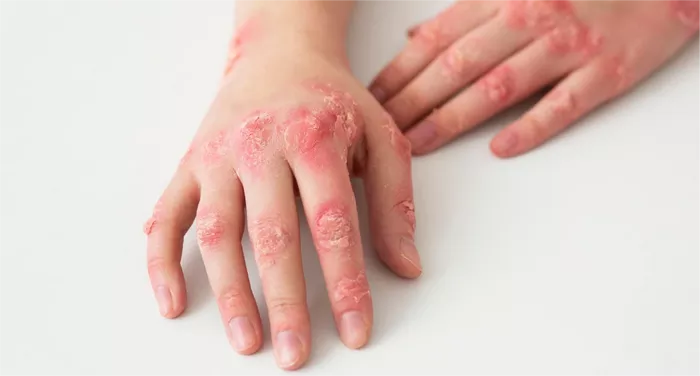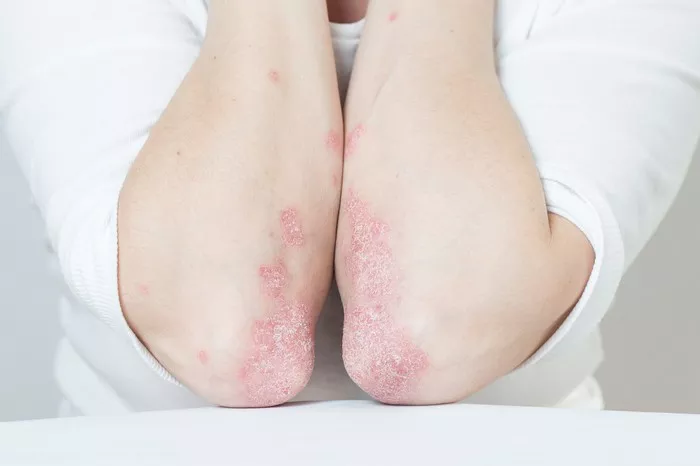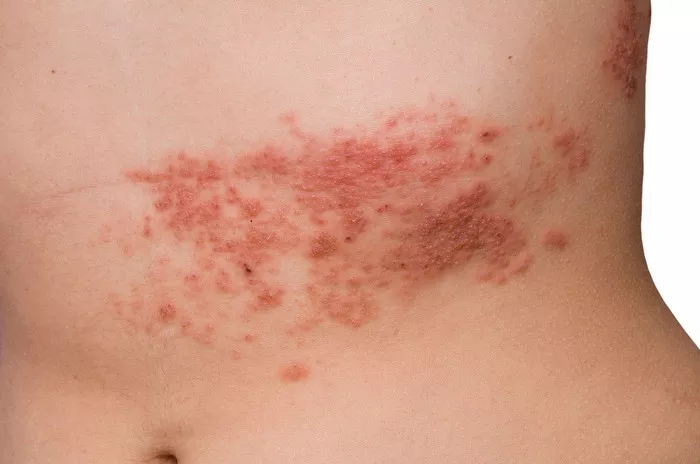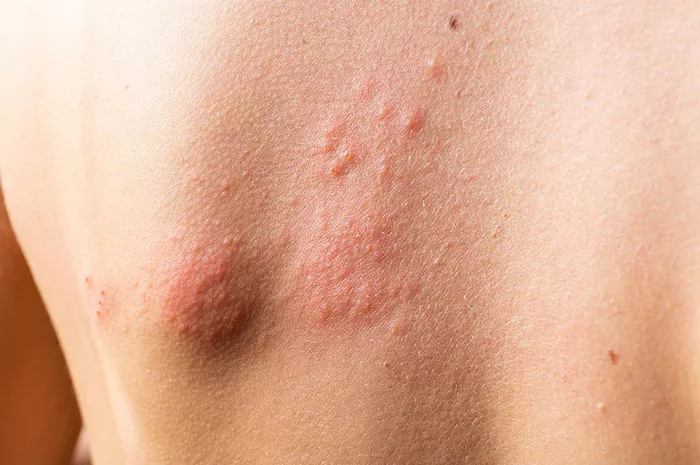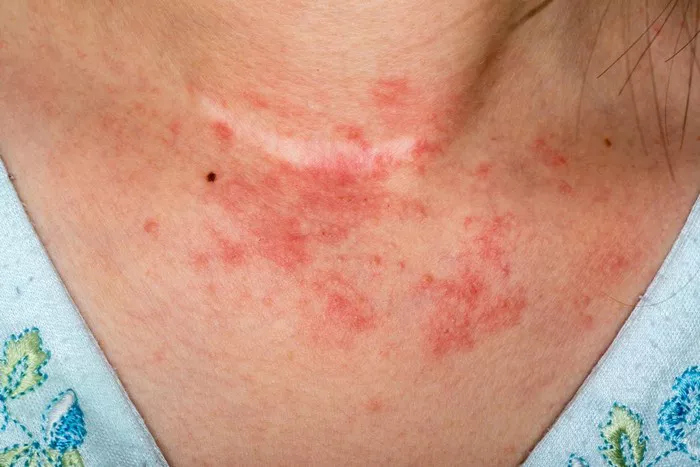Eczema, also known as atopic dermatitis, is a skin condition that causes inflammation, itching, and redness. It is a common condition, especially among children, but it can affect people of all ages. The symptoms of eczema can vary from person to person, making it sometimes difficult to identify. If you think you may have eczema, it’s important to recognize the signs and symptoms early. In this article, we will go over how to tell if you have eczema by looking at common symptoms, triggers, and risk factors. We will also discuss when you should seek medical advice.
What Is Eczema?
Eczema is a skin condition that causes the skin to become red, inflamed, and irritated. It can occur anywhere on the body, but it is most common on the face, hands, and the back of the knees and elbows. Eczema is a chronic condition, which means it can last for a long time, and in some cases, it may be lifelong. While there is no cure for eczema, the symptoms can be managed with proper care and treatment.
The cause of eczema is not fully understood, but it is believed to be linked to a combination of genetic and environmental factors. People with eczema may have a genetic predisposition that makes their skin more sensitive to irritants and allergens. Environmental triggers, such as certain foods, soaps, or weather changes, can make the condition worse.
Common Symptoms of Eczema
The symptoms of eczema can vary depending on the person and the severity of the condition. However, there are some common signs to look out for that may indicate you have eczema. These include:
1. Dry, Itchy Skin
One of the most common signs of eczema is dry, itchy skin. The skin may feel tight, rough, and uncomfortable. The itching can be mild or severe, and scratching the skin can make the irritation worse. Scratching may also lead to broken skin, which can increase the risk of infection.
2. Red or Inflamed Skin
Eczema often causes redness and inflammation in the affected areas of the skin. The skin may look irritated, swollen, and sometimes even feel warm to the touch. In severe cases, the skin can become raw and weepy, especially if it has been scratched repeatedly.
3. Rash or Bumps
A rash is a common symptom of eczema, and it can appear in different forms. Some people develop small, raised bumps that can be itchy. In other cases, the skin may develop larger patches of inflamed skin that are scaly and cracked. The rash is often most noticeable in the creases of the skin, such as the elbows, knees, and the back of the neck.
4. Thickened Skin
Chronic eczema can cause the skin to thicken in the affected areas. This is called lichenification, and it occurs when the skin becomes rough, leathery, and more prone to cracks. This thickening of the skin happens due to prolonged scratching and irritation over time.
5. Cracking or Oozing Skin
In more severe cases of eczema, the skin can crack and ooze. The cracks may appear in the form of small tears, and the skin may leak clear fluid or pus. This can be particularly painful and may increase the risk of infection. If you notice oozing or crusting of the skin, it is important to seek medical attention to prevent further complications.
Other Symptoms to Look For
In addition to the common symptoms mentioned above, eczema can also cause other symptoms, depending on the individual. Some people may experience the following:
Swelling: The skin may become swollen, particularly in the areas that are irritated or scratched.
Flaking or Scaling: The affected skin may peel or flake, leaving a dry, scaly appearance.
Hyperpigmentation: In some cases, eczema can cause dark patches to appear on the skin, especially after the rash has healed.
Infections: People with eczema are more prone to skin infections. If the skin is broken or scratched, bacteria or fungi can enter and cause an infection, leading to increased redness, swelling, and pain.
When Eczema Affects Different Age Groups
Eczema can affect people of all ages, but the symptoms may differ based on age.
1. Eczema in Infants and Children
In infants and young children, eczema often appears on the face, scalp, and outer surfaces of the arms and legs. The rash may be red and inflamed, and it is usually very itchy. As babies grow, the rash may spread to other areas of the body, including the knees, elbows, and wrists.
In children, eczema can be more widespread, and it often appears as patches of dry, scaly skin. The skin may become thickened due to frequent scratching. Children may also experience outbreaks of eczema during seasonal changes or after exposure to allergens.
2. Eczema in Adults
In adults, eczema often appears in the same areas as it does in children, including the creases of the elbows, behind the knees, and on the hands and feet. The skin may become dry and cracked, especially in areas that are frequently exposed to water or harsh chemicals. In adults, eczema can also lead to other complications, such as thickened skin and infections.
Triggers of Eczema
Certain environmental and lifestyle factors can trigger eczema flare-ups. These triggers can vary from person to person, but common ones include:
Dry skin: Exposure to cold weather, low humidity, or long hot showers can dry out the skin, making it more prone to eczema.
Irritants: Harsh soaps, detergents, and fragrances can irritate the skin and cause eczema flare-ups. Certain fabrics, like wool, can also cause irritation.
Allergens: Dust mites, pollen, mold, pet dander, and certain foods can trigger eczema in some people.
Stress: Emotional stress can worsen eczema symptoms, as stress can affect the immune system and increase inflammation.
Infections: Bacterial, fungal, or viral infections can trigger eczema flare-ups or make existing eczema worse.
Heat and sweating: Overheating and sweating can lead to flare-ups, especially during exercise or in hot weather.
Risk Factors for Eczema
While anyone can develop eczema, some people are more likely to develop the condition due to certain risk factors. These include:
Family history: Eczema tends to run in families. If a parent or sibling has eczema, asthma, or hay fever, you may be more likely to develop eczema as well.
Having other allergic conditions: People with asthma, hay fever, or other allergies are at a higher risk of developing eczema.
Living in urban areas: Environmental factors like pollution and exposure to chemicals can increase the risk of developing eczema. People living in cities may be more likely to experience flare-ups due to these environmental factors.
Age: Eczema is more common in children, but it can develop at any age.
When to See a Doctor
If you have persistent or severe skin irritation, redness, itching, or other symptoms that resemble eczema, it’s important to consult with a healthcare provider. A doctor can help diagnose eczema by examining your skin, asking about your symptoms, and reviewing your medical history. They may also perform tests to rule out other skin conditions or allergies.
You should seek medical advice if:
- The rash or irritation is not improving or is getting worse.
- You develop blisters or oozing from the skin.
- You have signs of infection, such as increased redness, swelling, or pus.
- The itching is causing significant discomfort or sleep disturbances.
- You are unsure about the cause of your symptoms.
How Doctors Diagnose Eczema
A doctor will typically diagnose eczema based on your medical history and a physical examination of your skin. In some cases, they may take a skin sample (biopsy) to rule out other conditions, such as psoriasis or fungal infections. They may also conduct allergy tests to identify potential triggers for your eczema.
Conclusion
Eczema can be an uncomfortable and frustrating condition to deal with, but by recognizing the symptoms early and taking steps to manage flare-ups, you can keep the condition under control. The most common signs of eczema include dry, itchy skin, redness, inflammation, and rashes, but the severity and appearance of the symptoms can vary. If you think you have eczema, it’s important to see a doctor for a proper diagnosis and treatment plan. With the right care, most people with eczema can lead normal, healthy lives.
Related topics


